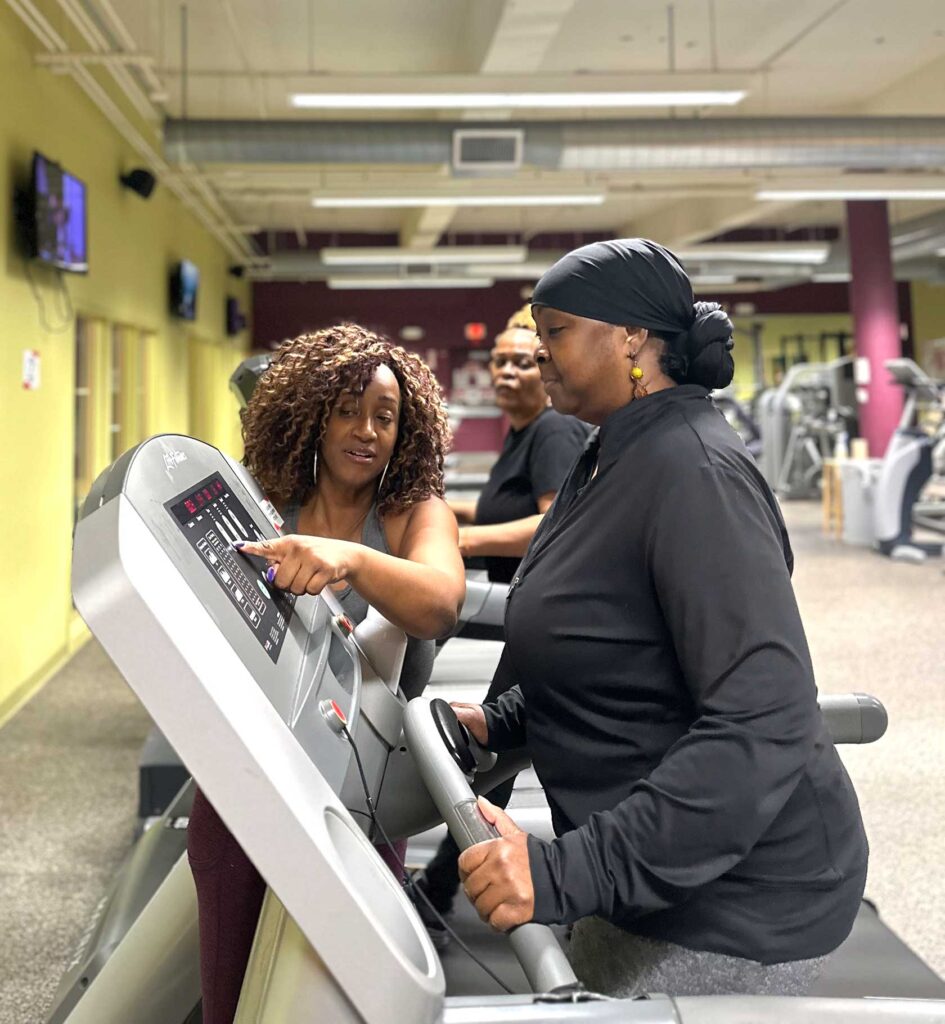
The phrase “New Year, new me” is popular for a reason. For many, the new year brings a new start, one filled with change. For others, the new year can be filled with pressure and anxiety.
According to a Drive Research study on 2024 resolutions, only 9% of Americans actually keep their resolutions throughout the year.
Center for Creative Life Solutions Associate Therapist Melanie Banks says there’s a reason for that.
“New Year’s can be a natural time to reevaluate your goals and reflect on what changes you want to strive for in the upcoming year. For some people it’s reset; they need to get started. However, New Year’s resolutions are often not sustainable because the behaviors and mindsets that create effective change are missing from the conversation and the focus is only on the end result. Small changes and periodic goal-setting throughout the year are better for creating effective change,” she said.
Setting small goals is exactly what Tanisha Tate, Community Engagement Director at Healthworks Community Fitness recommends to her clients.
“I always try to encourage my members to find ways to celebrate even their smallest victories. They say ‘I’m going to lose 20 pounds this year.’ I’ll suggest goals like adding more greens to their meals. These are small but very effective things,” the personal trainer said.
No matter how well-intentioned, sometimes New Year’s resolutions can do more harm than good.
“New Year’s resolutions can have a negative impact on your mental health. It’s disappointing to set goals and not achieve them. This can reduce our confidence and belief that change is possible. On the other spectrum, people can become hyper-focused on meeting their goals and put too much pressure and stress on themselves. This can lead to increased anxiety. Ultimately, when setting goals, we want to have self-confidence, self-compassion, and balance at the forefront,” said Banks whose practice specializes in Black women’s mental health and life transitions.
Tate agrees that resolutions can be harmful. She finds that it adds unnecessary pressure to her clients’ lives and can cause them to give up. She suggests focusing on the fact that you are starting to make changes and make it less about when.
“People feel like the new year or a Monday, that magical Monday will be a reset date. And then they get frustrated when it doesn’t go as planned. People are too hard on themselves with their resolutions,” she said.
Setting lofty goals at the beginning of the year is great but smaller steps can make tackling the outcome more manageable.
“Big goals are great, but incremental steps are most effective in making change. If you want to start reading then set an intention of reading a chapter a week. If your goal is to read a book a month, that may be hard to sustain and you’re more likely to give up,” Banks says.
Tate says her clients often come in with a magic number of pounds they want to lose. Focusing on a number on the scale can be daunting, especially if results aren’t seen quickly. With smaller goals, it’s easier to see change.
“Don’t look at the scale. Focus on inches because sometimes we gain muscle. Sometimes you might be the same weight, but you’ve lost inches, you’re more toned. Think about how you want to feel. They’ll say, ‘I feel good walking these stairs. I’m not as tired.’ That’s a really good goal,” she says.
Banks says starting with small goals is a good start but there are a few things that can set you up for success when it comes to New Year’s resolutions or goals throughout the year.
“Think small, manageable, and realistic steps towards your goals. Completing small tasks can help you build confidence and self-trust. These are important motivators towards change. Having an easy system to help you track your progress is also helpful. Don’t be afraid to pivot or adjust if the initial plan doesn’t work. Sometimes that shift can help you to get back on track,” she says.
According to Tate, people whose goal is to get healthier tend to think it takes a lot of investment to get started and stay on track. She says that most people have what they need in the palm of their hands or pockets.
“If you can’t invest in a personal trainer, bring your phone and put it on YouTube. Put on your favorite influencer. For people who are on social media, follow somebody who works out or is a healthy eating influencer,” she shares.
Tate says how you frame your goals matters. She says sharing your goals isn’t just about accountability.
“Setting small goals is key but you should ask yourself, ‘What will my victory look like?’ When you tell other people in your network, they may say, ‘let me see how I can help you.’ It’s important to identify your victories and your resources,” she says.
No matter what path you take to crush your New Year’s resolutions or goals, Banks said it’s important to give yourself grace.
“In therapy, many clients come in with one goal in mind, but as we progress their goals shift. I think it’s important to re-evaluate if this goal still serves you and whether the steps are still moving you in the direction you want,” Banks says.







